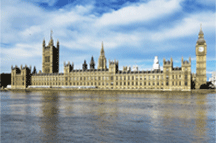The Transparency of Lobbying, Non-party Campaigning and Trade Union Administration Bill, sponsored by Lord Wallace of Tankerness (Lib Dem) in the House of Lords, returned to the upper house on 13th January for a first day of Report stage.
Lord Hardie (CB) opened the debate on Part 1 of the Bill regarding registration of consultant lobbyists. He suggested widening the scope of the Bill by substituting “consultant lobbying” with “professional lobbying”. According to Lord Hardie, the Bill does not apply to “national or multinational companies or organisations which seek to exert influence on the Government and choose to do so by using in-house lobbyists” despite the latter “represent[ing] about 80% of the lobbying industry”.
Lord Hardie continued by suggesting that the register proposed in the Bill would replace the current voluntary register operated by the Public Relations Consultants Association (PRCA), which does include in-house lobbyists. The Bill would, therefore, conceal information rather than improve transparency.
 PRCA Director General Francis Ingham argued “it is deeply ironic that this Parliament’s commitment to transparency was widely referenced throughout the debate. Politicians were on the cusp of resolving some key aspects of this unloved Bill: today we achieved a victory for voluntary codes of conduct, but the politicians need to demonstrate their commitment to transparency and enact the remaining serious reforms.”
PRCA Director General Francis Ingham argued “it is deeply ironic that this Parliament’s commitment to transparency was widely referenced throughout the debate. Politicians were on the cusp of resolving some key aspects of this unloved Bill: today we achieved a victory for voluntary codes of conduct, but the politicians need to demonstrate their commitment to transparency and enact the remaining serious reforms.”
Many Peers supported the argument put forward by Lord Hardie, notably Lord Norton of Louth (Con), Lord Campbell-Savours (Lab) and Baroness Hayter of Kentish Town (Lab). However, the amendment was defeated by 218-185.
Further efforts to widen the Bill’s scope and include not only Ministers and Permanent Secretaries, but also Parliamentary Private Secretaries and civil servants were also defeated by 242 to 191. However, a suggestion by Lord Tyler (Lib Dem) to include political advisers was carried by 213 to 195.
Baroness Hayter of Kentish Town expressed her regret that the Bill would not include a code of conduct. As a consequence, “slightly dodgy lobbyists”, as described by Baroness Williams of Crosby (Lib Dem), may also register and, therefore, lobby.
Lord Wallace of Tankerness responded that the Bill “will require consultant lobbyists to state in their register entries whether they subscribe to a publicly available code of conduct in relation to their lobbying activity and, if so, where a copy of the code can be accessed.” According to the Association of Professional Political Consultants (APPC), “this is a progressive and sensible move and will provide for greater transparency in terms of highlighting the third party consultants who comply with existing voluntary codes.”
Lord Norton of Louth spoke in favour of Ministers, civil servants within Ministers’ departments and special advisers publishing written or oral communications received from consultant lobbyists, except “if in the Minister’s judgment they contain material that is commercially sensitive or have the potential to affect adversely national security.” However, this amendment was defeated by 226 to 175.
Peers also discussed Part 3 of the Bill regarding Trade Union’s registers of members. The Bill will continue to be debated in the House of Lords for a second day of Report stage on Wednesday 15th January.














